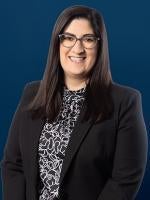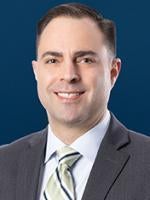The SECURE 2.0 Act includes a substantial expansion of the Employee Plans Compliance Resolution System (EPCRS), the IRS umbrella program for correction of retirement plan defects. It also requires EPCRS to be updated to comply with these new provisions within two years of the date of enactment of SECURE 2.0. However, a number of questions have arisen regarding exactly how (and when) the new rules will apply in practice. The IRS issued Notice 2023-43 last week to provide taxpayers with interim guidance on part of the to-be-revised EPCRS, particularly addressing Section 305 of SECURE 2.0.
Section 305 of SECURE 2.0 expands EPCRS to allow for self-correction of any "eligible inadvertent failure," and further provides for an indefinite correction period so long as the correction is generally initiated prior to identification of the error by the IRS and completed within a reasonable time after the error is discovered. The Self-Correction Program (SCP) under EPCRS allows a plan to self-correct certain errors without paying a fee or being subject to an IRS sanction, so long as the plan has established certain compliance practices and procedures. An "eligible inadvertent failure" under SECURE 2.0 is any failure that occurs, despite compliance practices and procedures being in place, so long as the failure is not egregious (such as a misuse of plan assets) or an abusive tax practice.
Critically, Notice 2023-43 clarifies that plan sponsors can begin self-correcting certain eligible inadvertent failures (subject to conditions and limitations outlined in the notice) before EPCRS has been updated. There are, however, a number of exceptions to this general rule. Of note, the correction of an operational failure by a retroactive plan amendment that conforms the terms of the plan to the plan’s prior operations is not eligible for SCP if it results in a less favorable treatment of a participant or beneficiary than the original terms of the plan.
Section 305 of SECURE 2.0 also provides that IRA custodians will be able to utilize SCP for eligible inadvertent failures. However, Notice 2023-43 provides that IRA custodians may not begin using SCP until EPCRS has been updated.
Notably, Notice 2023-43 does not address the pending changes to EPCRS relating to the recovery of overpayments or correction of automatic contribution plan errors, provisions which are also included in SECURE 2.0.
Notice 2023-43 provides interim guidance on one section of SECURE 2.0 and is not a final rule. The IRS is inviting public comments on the notice, and after review of comments, will likely issue updated or supplemental guidance.






 />i
/>i

